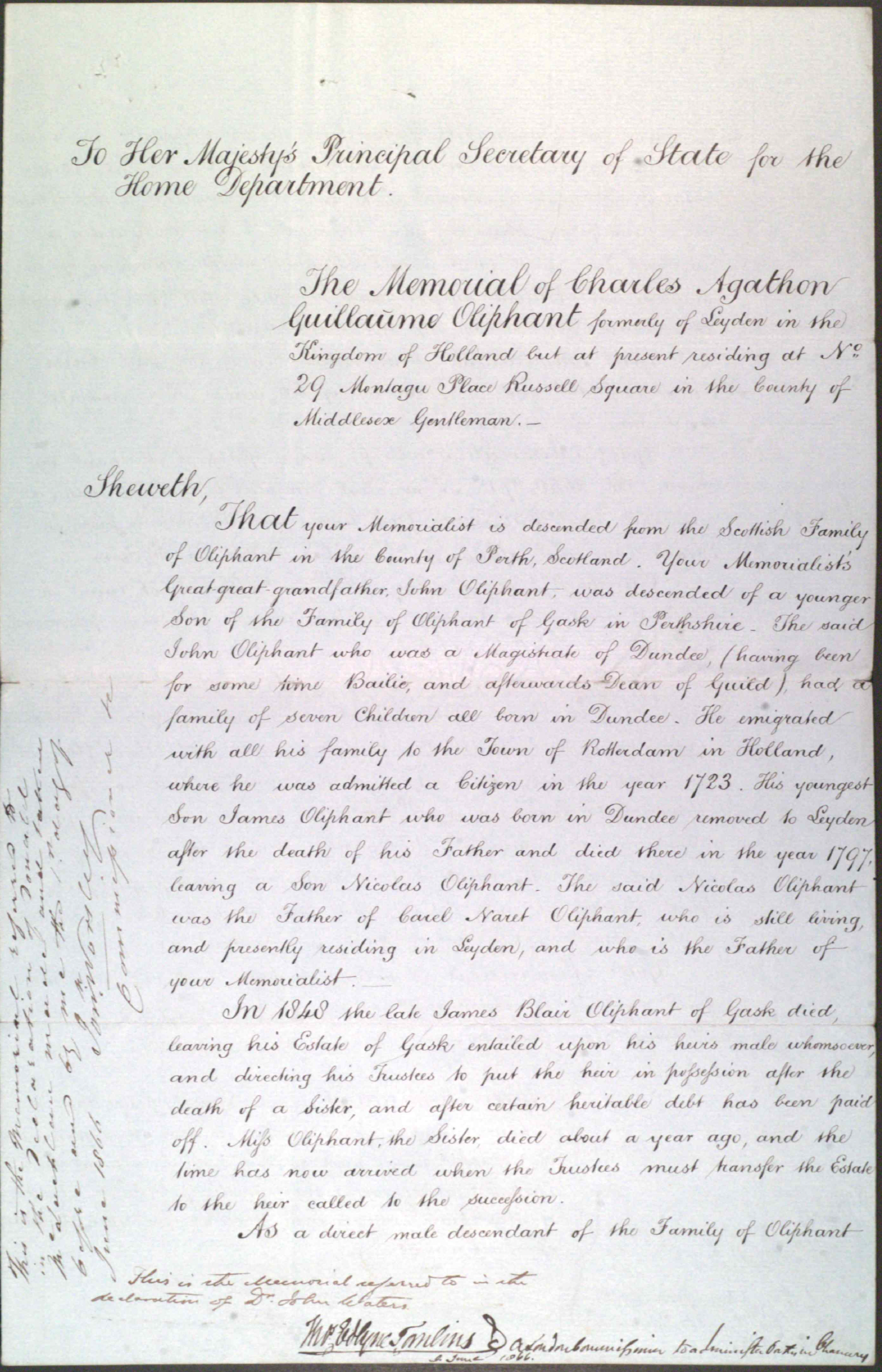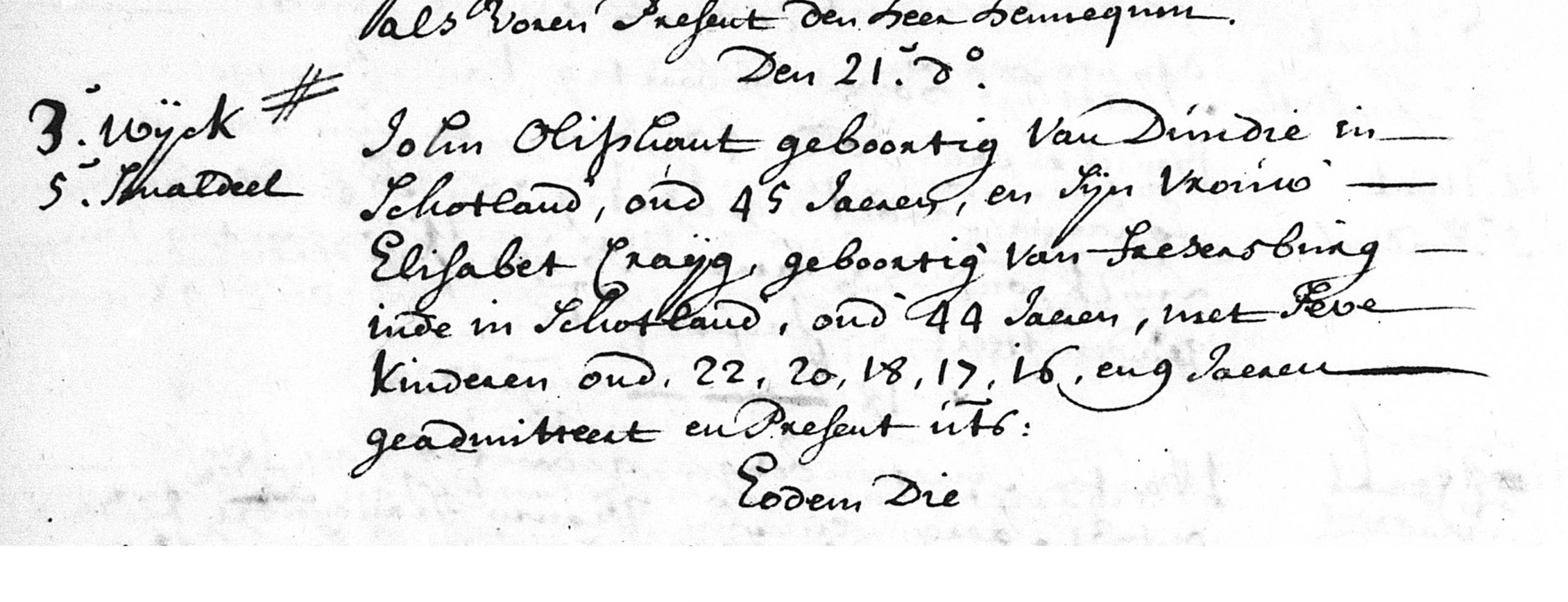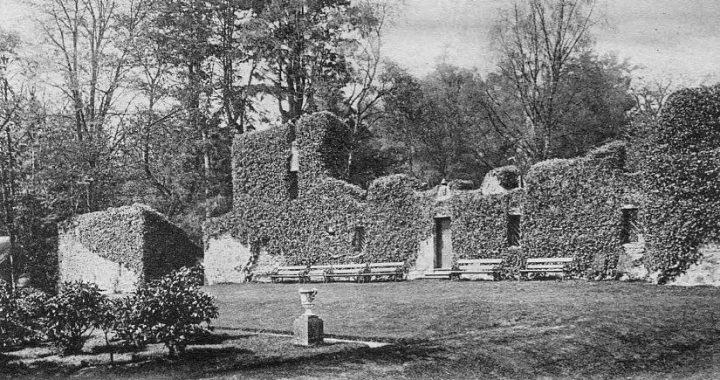
Charles Agathon Guiliame Oliphant was born in Holland, in 1811, as the only son of Carel Naret Oliphant. Achieving a good degree of success as a merchant, he settled in Java for a number of years before returning to Holland in 1850. During the extensive search for heirs male to the Gask estate following the death of James Blair Oliphant in 1847, William Forbes Skene, the legal agent for the Gask Trustees, became acquainted with Oliphant and correspondence discussing evidence of his descent from William Oliphant, Merchant in Dundee, was exchanged. Statements made were verified by Skene who immediately sought about formalising the claim. At the same time, to be better placed to succeed, Oliphant settled in London with his wife and daughter on 2 May 1866 and petitioned the Home Office for citizenship later that same month, which was granted on 19 June 1866, with the following note from the Home Office being made on the docquet: “This is a very curious case. Mr Skene, his Scotch Agent, called here about it a few days ago. I think that an exemption to the rule which requires 3 years residence may be made in this case.”[1]
His health, though, ruined from his time in Java and the London weather exaserbating it, and coupled with his father’s deteriorating health, Oliphant became compelled to return to Holland. Although this was intended to be temporary, his condition worsened to such a degree that he became bed-ridden and unable to travel. Meantime, Skene continued those legal steps required to allow him to gain possession of the Gask estate and a brieve from the Chancery in Edinburgh was obtained. With that in hand Skene and an agent from that office travelled to Holland to undertake service. That accomplished, the only remaining requirement was for Oliphant to recover at least sufficiently enough to travel to Scotland and confirm ownership by taking Sasine. This was not to be and he died at Leyden, on 16 September 1868.[2]
He had married at Burgerlijke Stand, Arhem, on 20 October 1853, to Cornelia Hermina Dibbets by whom he had no issue. His only child, a natural daughter Wilhelmina Agatha Oliphant, was a beneficiary of her father's Will and married Gustaaf August Bodenburg Hellmund, Merchant in Curacoa.
Despite the evidence gathered and authenticated by Skene and the Chancery clerks, the eventual heirs to the Gask estate were dismissive of the claim, albeit after Charles Oliphant's death, and sought to diminish how near he had come to succession with comments to the effect that as a kindness they "allowed" the "Dutchmen" a small liferent from the Gask estate. In point of fact, that original evidence incorporated with new evidence now to hand proves the claim's validity by virtue of Charles Oliphant's lawful descent from William Oliphant, brother of Laurence Oliphant, 1st of Gask, via his eldest son, Laurence Oliphant, who was father of a third son, William Oliphant, a merchant and bailie of Dundee, and whose eldest surviving son, John Oliphant, also a merchant in Dundee, engaging as a Jacobite during the '15, fled to the continent and, as the following proves, was granted citizenship of Rotterdam for one year on 21 July 1723;

This was renewed on 28 June 1724 for an indeterminate period of time and in due course, his son, James Oliphant, was also granted citizenship of Rotterdam on 23 October 1752. He was the grandfather of Carel Naret Oliphant, (born 1781) father of Charles Agathon Guiliame Oliphant, who, at the death without issue of James Blair Oliphant of Gask in 1843, became heir male of his stirpes.
Evidence presented during the Oliphant Chiefship Petition of 2002 as well as new evidence to be presented in due course with the Oliphant of Newton Baronetcy Petition proves that the male issue of the body of Laurence Oliphant of Newton, father of Laurence Oliphant, 1st of Gask, extinguished on Charles Oliphant's death in 1868 and that succession to the Gask estate should have opened up to the next heir male, Oliphant of Condie, however, Condie at that time not being able to produce evidence to prove his ancestry to the court's satisfaction became compelled to withdraw. Notwithstanding Gask and other lands having long been sold by the heirs female and right of possession being now a moot point, those points of genealogy as well as the primacy within the family still continue to maintain a considerable degree of interest.
[1] HO1/131/5087.
[2] Edinburgh Sheriff Court Inventories.
The Home Office file can be viewed here: Oliphant_Home Office File
